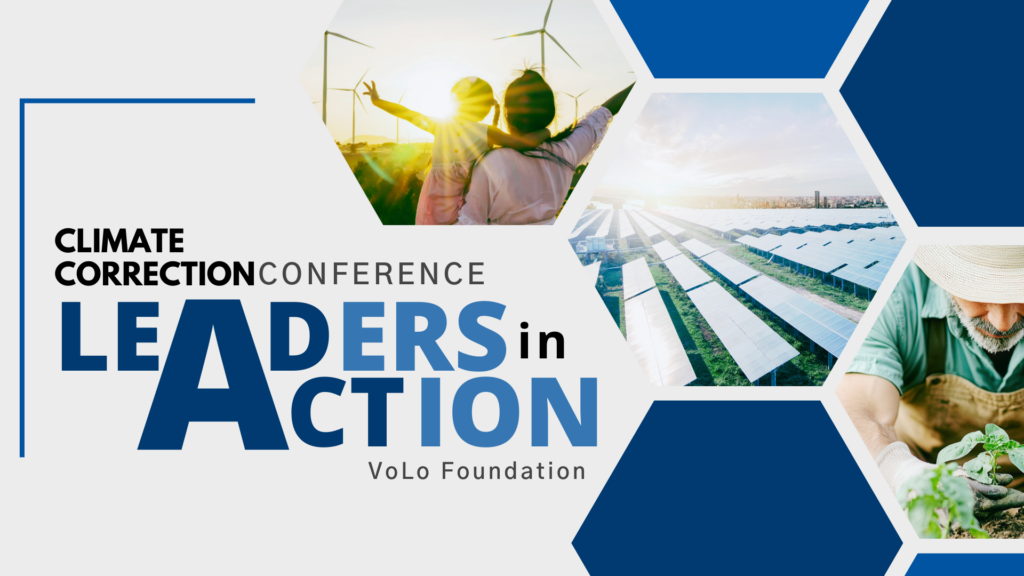By Carlos Roa, VoLo Foundation
Tonmoy Ghosh, a master’s student in civil engineering at Embry-Riddle Aeronautical University in Daytona Beach, is turning innovation into impact. His project, “Use of Low-Cost Sensors for Addressing Environmental Justice,” leverages affordable technology to monitor air pollution in underserved communities, making environmental data more accessible and equitable.

This visionary work earned him VoLo Foundation’s prestigious VISTA Award, which honors outstanding contributions in Vision, Innovation, Sustainability, Technology and Action. With it, Embry-Riddle received a $10,000 grant to help bring Tonmoy’s idea to life. The recognition was presented to him last March at the Climate Correction conference, where he was one of the speakers and explained his work to the attendees.
We spoke with Tonmoy to learn more about the inspiration behind his project, the challenges of developing low-cost environmental technology, and how he hopes to expand this work for greater impact.
Why did you decide to focus on air quality monitoring as the foundation of your project?
There are tiny particles in the air around us, known as particulate matter, which we classify by size. Ultra-fine particles are smaller than 2.5 microns. These ultra-fine ones are so small that we inhale them without noticing. They reach our lungs and even our bloodstream.
My work focuses on monitoring these particles to support environmental justice. You might wonder why this matters when we already have air quality data on our phones. The issue is that government monitors, while very accurate, are few and far apart. For example, there is one in Orlando and another in Daytona, with nothing in between.
That’s why we use low-cost air sensors. They’re affordable, portable, and can still offer up to 95% accuracy. You can install one in your car and collect real-time data as you move, helping us better understand and respond to air quality in the spaces where we live and breathe.
You mentioned environmental justice as a driving force behind your work. Why is that perspective so important to you?
I believe science exists to improve human lives. After the Industrial Revolution, we achieved tremendous progress, but at the cost of our environment. You can’t separate civilization from the environment. You can’t just say, “Let’s develop and ignore pollution.” The consequences are already here: rising sea levels, increasing carbon dioxide, climate change.
Environmental justice matters because pollution affects human health and quality of life, especially in underserved communities. And it’s not just about today; it’s about future generations too. People deserve to live in safe, healthy environments. I don’t see my work as just science for science’s sake; it’s about solving real human problems.
How do you envision your findings being used after your research is completed? Who do you think should use your data?
My focus is increasing data granularity through affordable sensors. Once people understand how the sensors work and how they benefit them, we’ll have much more data available.
This data can be used by local and state governments, urban planners, housing developers — in short, by anyone making decisions that affect where people live and work. For example, you shouldn’t build a housing complex in a heavily polluted area. With real-time data, we can identify pollution spikes, trace their causes, and propose targeted solutions. This helps inform policy and guide smarter decisions to improve public health.
Let’s talk about your personal journey. Why did you choose to focus on environmental engineering?
It goes back to the COVID lockdown. I’m from Bangladesh, a densely populated country with significant air pollution. During lockdown, everything shut down — factories, transportation — and I returned to my hometown. After a few weeks, I felt the difference. The air was noticeably cleaner. That change made a deep impression on me and inspired me to pursue research in atmospheric and environmental science, specifically air quality.
Back in Bangladesh, I worked on indoor air quality. Then I came to Florida to study at Embry-Riddle Aeronautical University, where I continued my research. That’s where I began focusing on particulate matter and using low-cost sensors.
How did it feel when you found out you’d won the VISTA Award?
I was overjoyed! It felt incredible. I celebrated, and then I attended the Climate Correction conference, where I met like-minded people who are also passionate about the environment.
There’s one quote from Thais Lopez Vogel that really stuck with me. “They say don’t bite off more than you can chew, but I’d rather choke on it if it means making a difference for the climate.” This mindset really resonated with me. We need that kind of courage and determination to move our work forward.
Even if we’re not here decades from now, someone will continue this work. That gives me hope for a better future.
Is there anything else you’d like to add?
Just that we all share this planet. Air doesn’t respect borders. If we want a healthier, more just world, we need to care about what we breathe, who’s affected, and what we can do to make things better. Thank you for giving me the opportunity to talk about this.
This piece was originally published at https://volofoundation.org/news/tonmoy-ghosh-the-vista-award-winner-fighting-for-the-air-we-deserve/. VoLo Foundation is a financial supporter of The Invading Sea. Banner photo: Ghosh receives the VISTA Award at the Climate Correction conference (Photo courtesy of VoLo Foundation).
Sign up for The Invading Sea newsletter by visiting here. To support The Invading Sea, click here to make a donation. If you are interested in submitting an opinion piece to The Invading Sea, email Editor Nathan Crabbe at nc*****@*au.edu.



